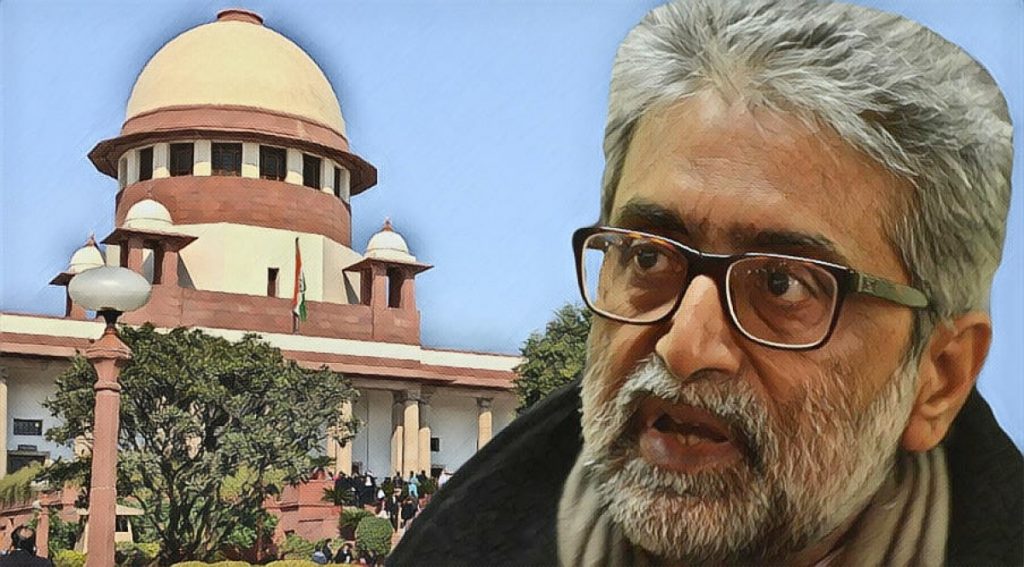New Delhi: Civil rights activist Gautam Navlakha surrendered Tuesday before the National Investigation Agency (NIA) here. His surrender came after the Supreme Court had rejected his plea seeking extension of time, officials said. Gautam Navlakha has sought extension of time due to the outbreak of COVID-19.
Navlakha, has been accused under the stringent Unlawful Activities (Prevention) Act for alleged involvement in the Bhima Koregaon riots in 2018. He was asked to surrender by the Supreme Court, officials said.
The apex court March 16 had directed him to surrender within three weeks. However, Navlakha had moved a plea seeking extension of time. His ground was that going to jail during the ongoing COVID-19 pandemic is ‘virtually a death sentence’.
A bench headed by Justice Arun Mishra said the accused should have honoured its decision of dismissal of the anticipatory bail. He should have also followed the direction to surrender within three weeks.
“Though we expected that the accused would surrender, honouring the order of this court, they have not done so. We are told that in Bombay, the courts are functioning. It would have been appropriate for the accused to surrender as the courts are open and not totally closed,” said the Justice Mishra.
In a statement, Navlakha said the ‘draconian provisions of the Unlawful Activities (Prevention) Act are not accompanied by stricter procedures regarding evidence, especially electronic, considering the stringent punishment provided for under the Act; the procedures, which otherwise provide tighter rules regarding evidence, are instead made elastic’.
“Under this double whammy, jail becomes the norm and bail an exception. In this Kafkaesque domain, process itself becomes punishment,” Navlakha said.
Navalekha is an activist and journalist with Mumbai-based ‘Economic and Political Weekly’ journal. He was one of the five activists arrested in the Bhima Koregaon case. However, he was granted protection from arrest by the Supreme Court and the Bombay High Court.
PTI
